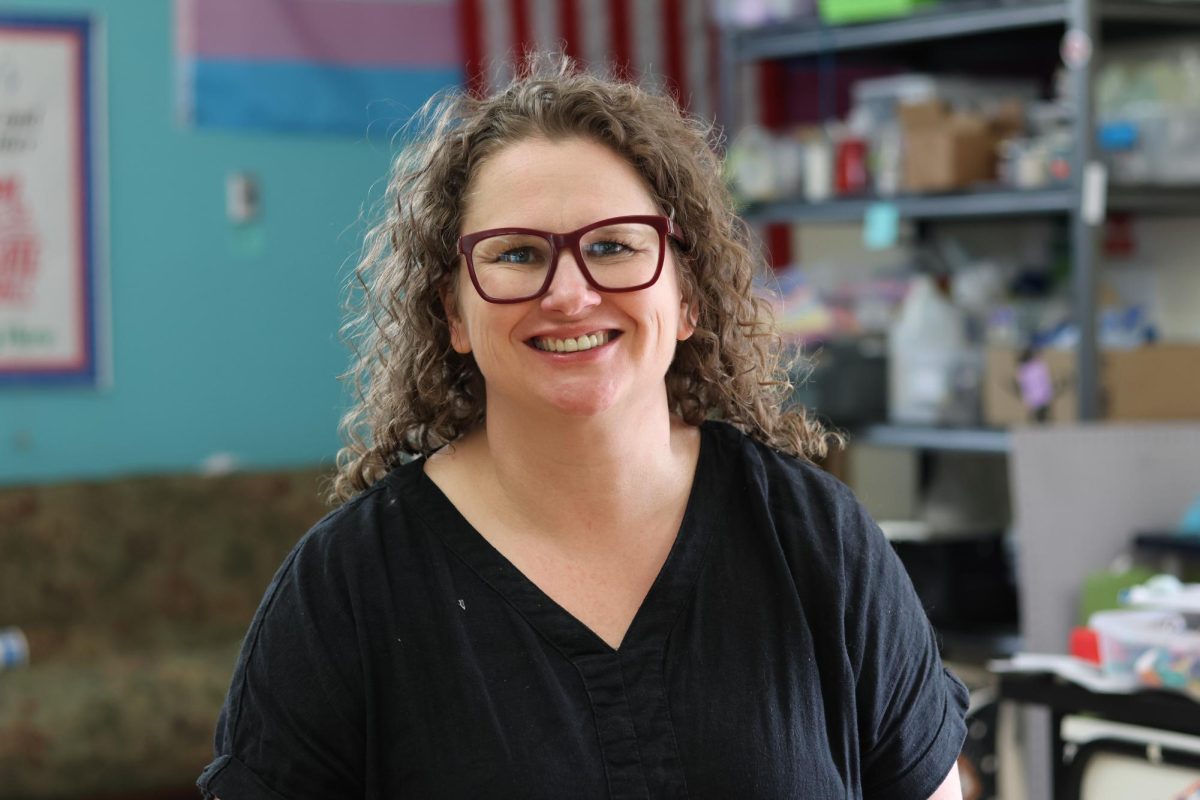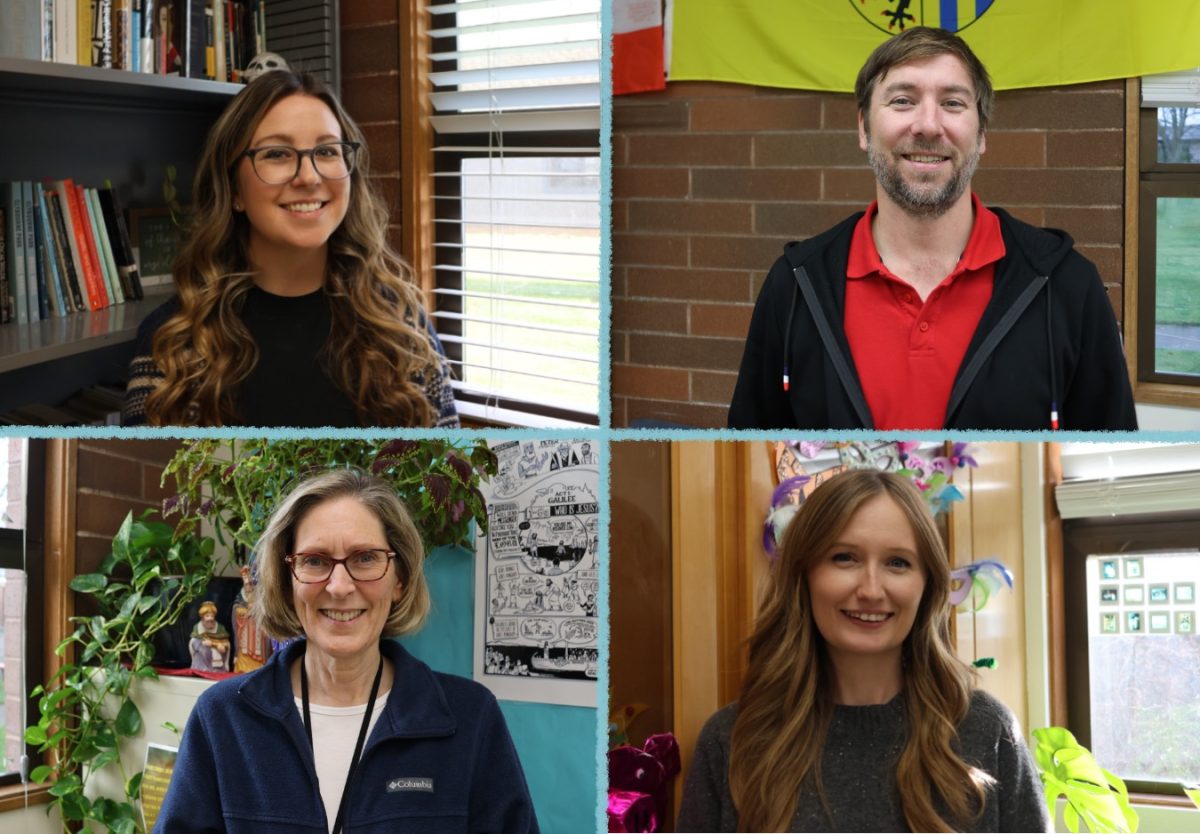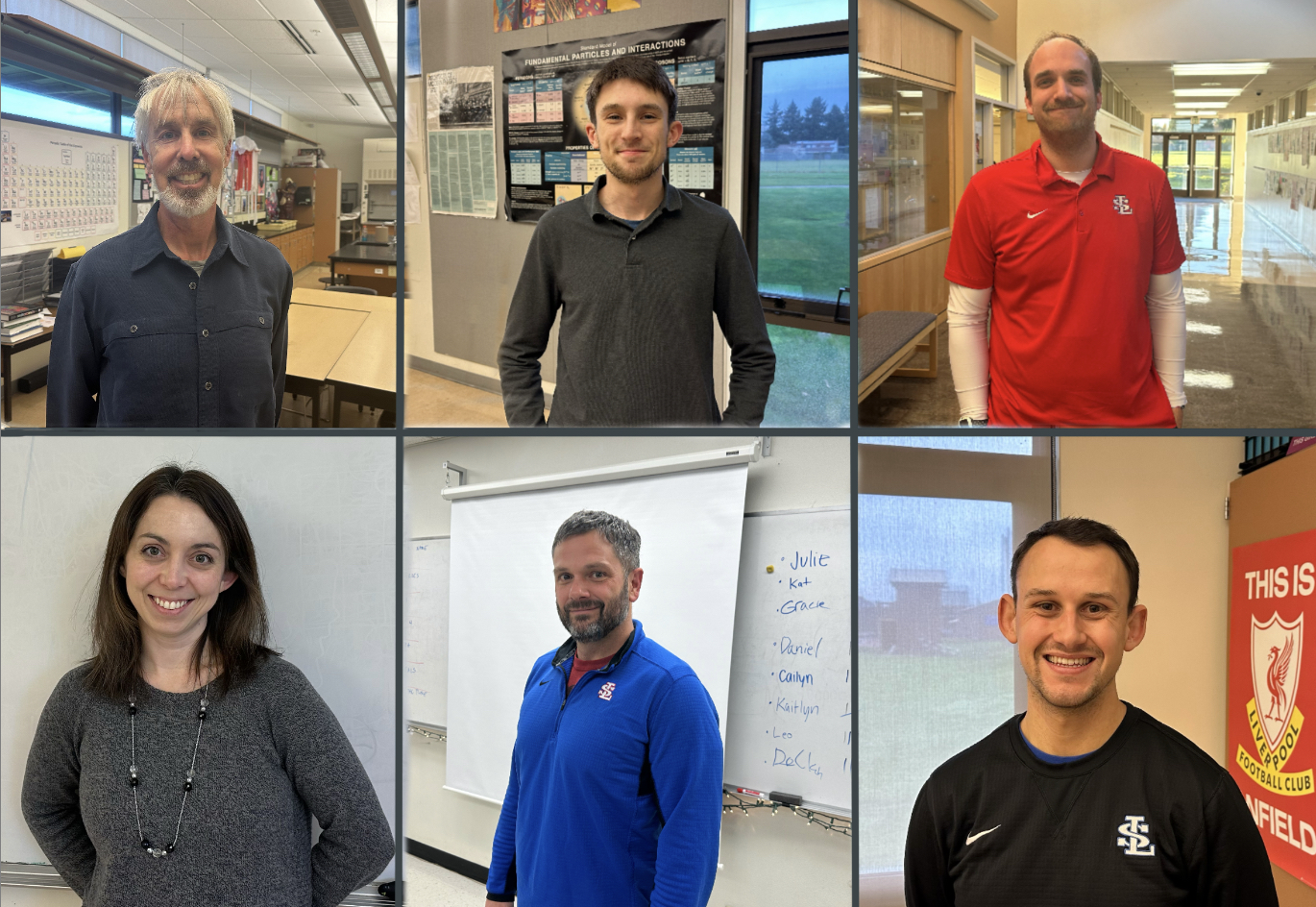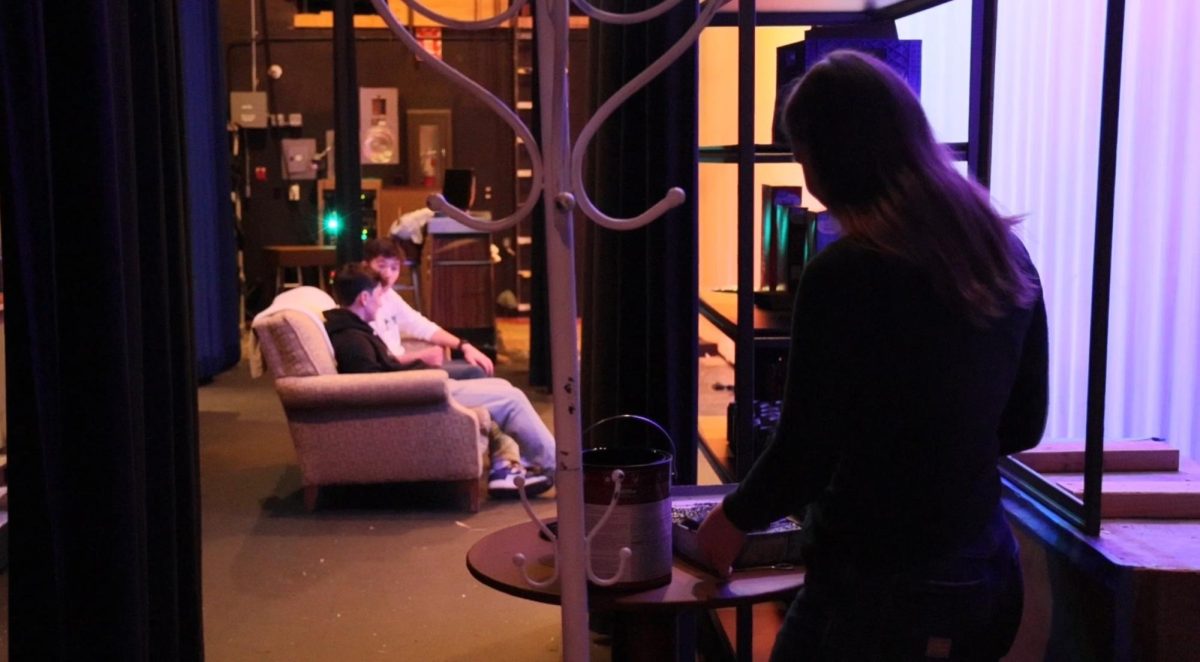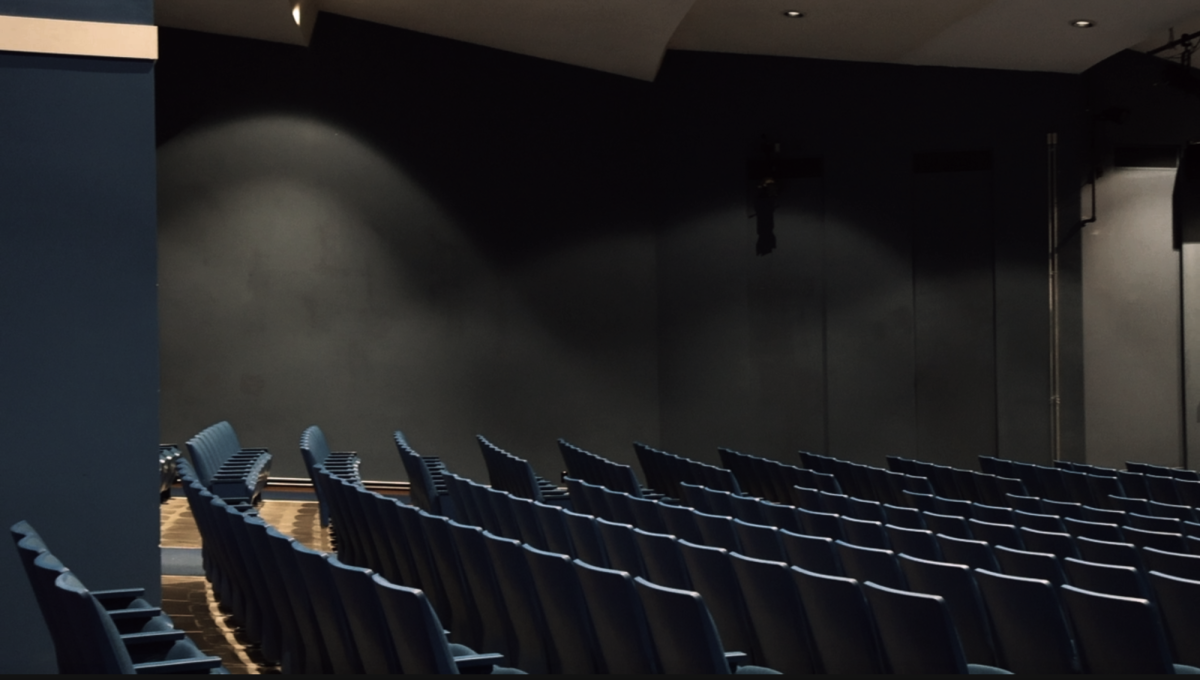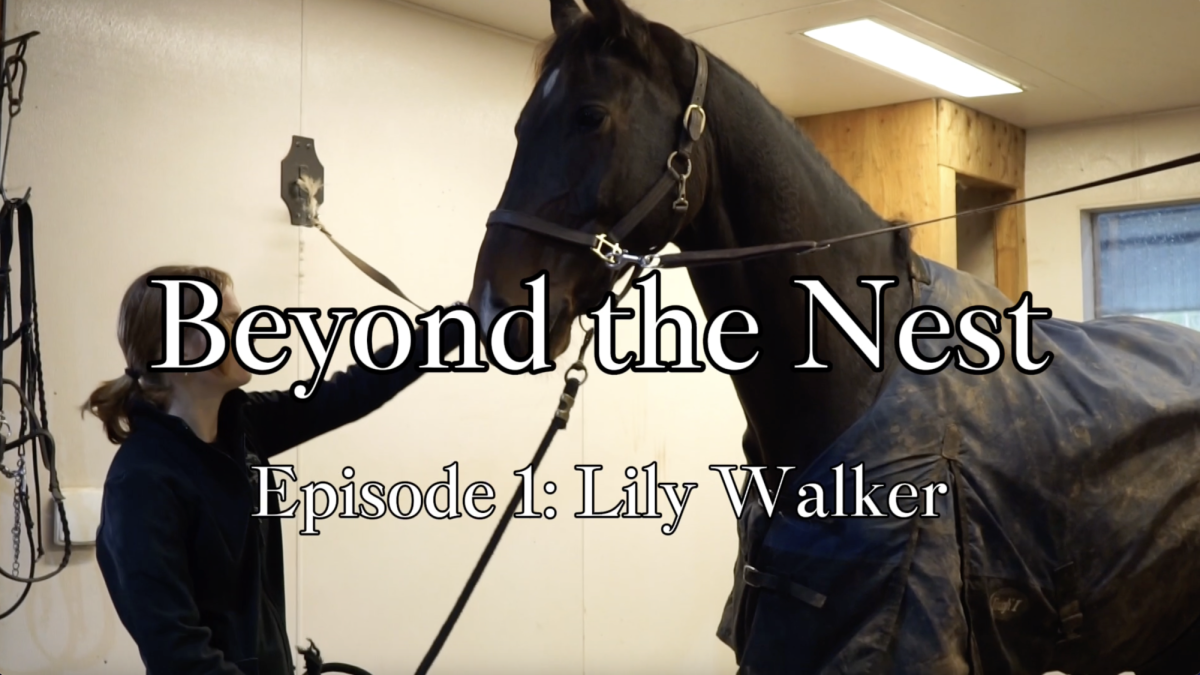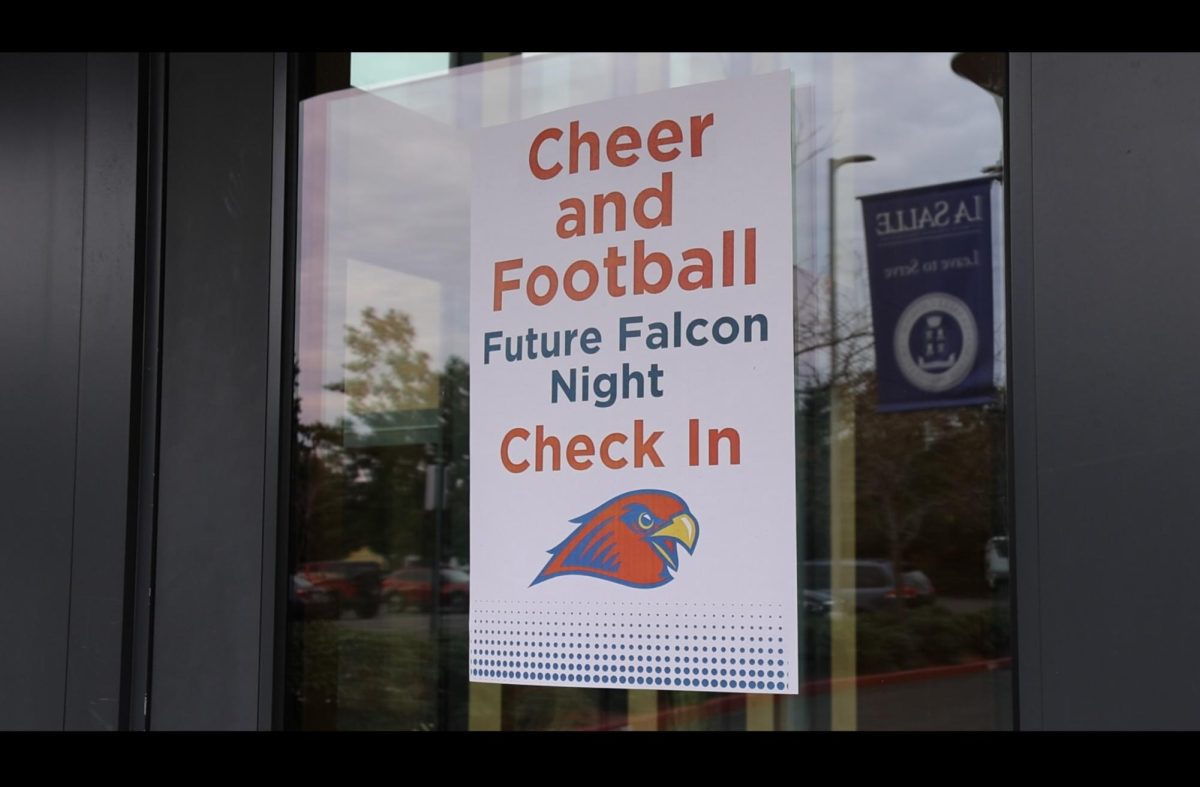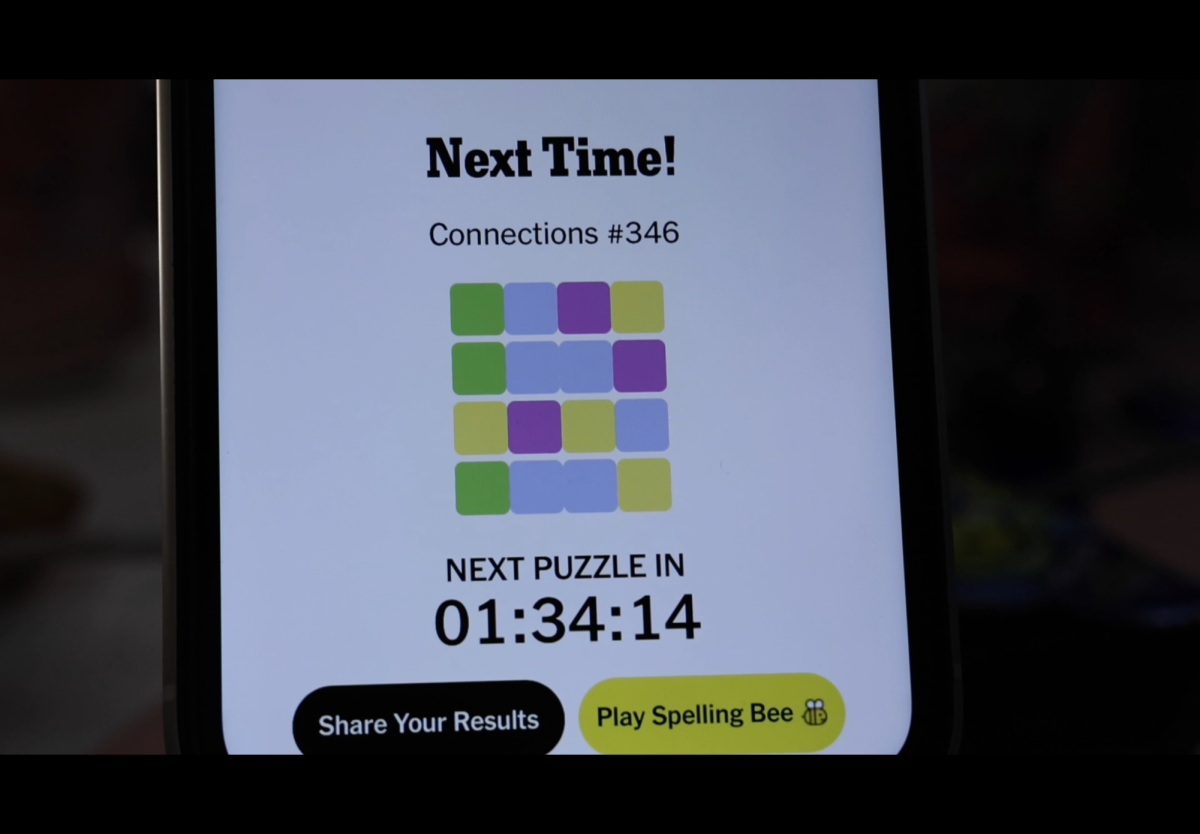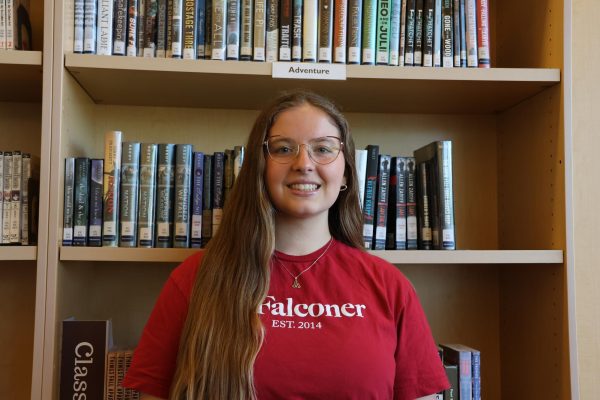When Science Department Chair Mr. Kyle Voge’s mother put him in piano lessons in the fifth grade, he was not happy and fought with her endlessly on it.
Then in ninth grade, he discovered that his favorite band, Guns N’ Roses, used piano in some of their songs. That changed everything.
“A bunch of their songs use piano, and I just thought that was cool,” Mr. Voge said. “I discovered that, and I was like, ‘Oh yeah, they rock and they play piano? I could do that.’”
He “fell in love with it,” he said, and played it all through high school and college.
After moving into his own place post-college, Mr. Voge didn’t own a piano, so he took a 10-year hiatus from the instrument. When he moved for the second time around 2014, he bought a piano and began playing again.
“It took a while to come back,” Mr. Voge said. “I think I passed where I was, but you lose a lot in 10 years, and that’s true if you take 10 years off of anything.”
His love for the piano also shines through at La Salle, where he can often be heard playing for students in class or just for personal enjoyment during breaks and after school. The piano he uses in his classroom was donated by choir & guitar teacher Mr. Otto Wild, because it wasn’t being put to much use where it was before.
“I use it once or twice in the physics curriculum to teach concepts about sound, but the rest of the time, it’s just nice for anybody that wants to come play to have a piano to play on,” Mr. Voge said.
Sophomore Harris Jones, a former student of Mr. Voge, especially enjoyed this aspect of class last year. Rather than simply being fed information, he liked that they got a hands-on example.
“So much of school can feel just like memorization of facts: take the notes, study them, get a good grade on the test,” Jones said. “But one of the things that Mr. Voge does really well is he makes you apply it. I’d rather do that than take a big long test.”
One of Jones’ favorite parts of Mr. Voge’s physics class was a project during the unit on frequency and sound in which students were asked to build their own instruments at home that are capable of playing different notes and volumes.
“I loved it because it made me take the knowledge and apply it to a real-world situation,” Jones said.
Jones made a pan flute out of straws for the project, cutting them to certain lengths and taping them to a piece of cardboard. To achieve different notes, he had to cut the straws to certain lengths, which he said proved difficult at times.
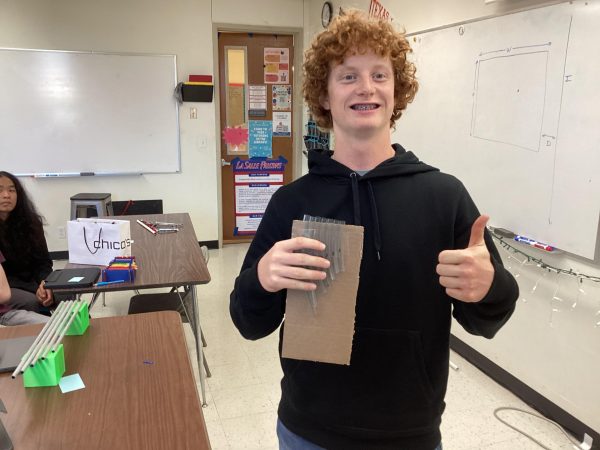
During this unit, Mr. Voge also uses his piano as a teaching aide, audibly modeling the idea for his students.
“When we talk about frequency being pitch, whether a high-frequency sound or a low-frequency sound, it’s nice to have it where I can actually play it,” Mr. Voge said. “You hear how this is higher, and you hear this is lower, and that’s happening because the sound waves are vibrating more or less often.”
In addition to being useful in class, Mr. Voge appreciates the piano for its accessibility and versatility.
“I feel like it’s probably one of the more universal instruments,” Mr. Voge said. “You can play rock on it, you can classical on it, you can play jazz on it, you can play anything on it, whereas you can’t maybe do that on other instruments.”
In particular, Mr. Voge likes to play classical music, with Frédéric Chopin being his favorite composer. Though it “changes from day to day,” he said, his favorite pieces are generally Chopin’s ballads.
“All four of the ballads are way beyond what I’m capable of playing, but the goal is someday I could do that,” he said. Currently, he’s working on Chopin’s Fantaisie-Impromptu.
Mr. Voge’s love for the piano reflects the value he places on music for life in general.
“It’s right up there with food and water,” Mr. Voge said. “I absolutely love it. Anytime I’m doing anything, whether it’s working on school, or driving, or running, or whatever, I’ve got to have music on. It’s super, super important.”


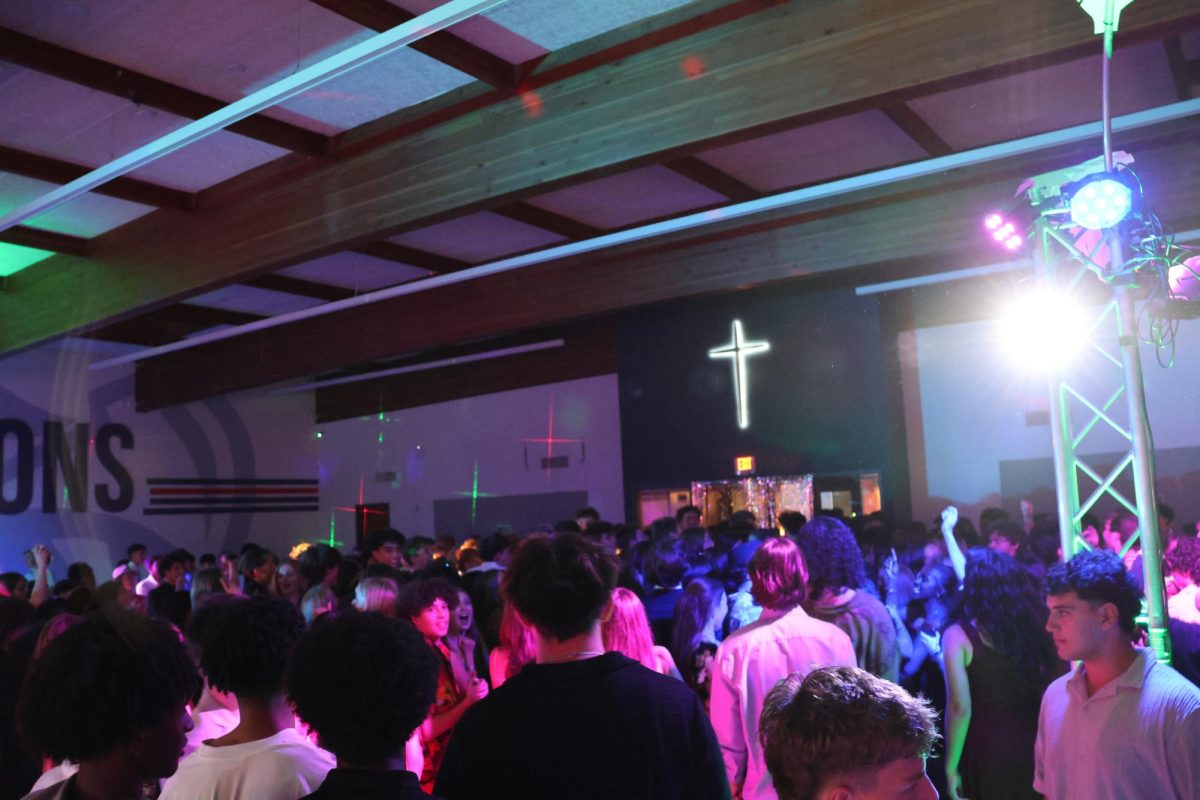
![Mr. Owen Furlong, the temporary Campus Safety Monitor, grew up near La Salle and described how Christ the King was “basically [his] backyard for a long time.”](https://lasallefalconer.com/wp-content/uploads/2025/10/115A2328-1200x800.jpeg)
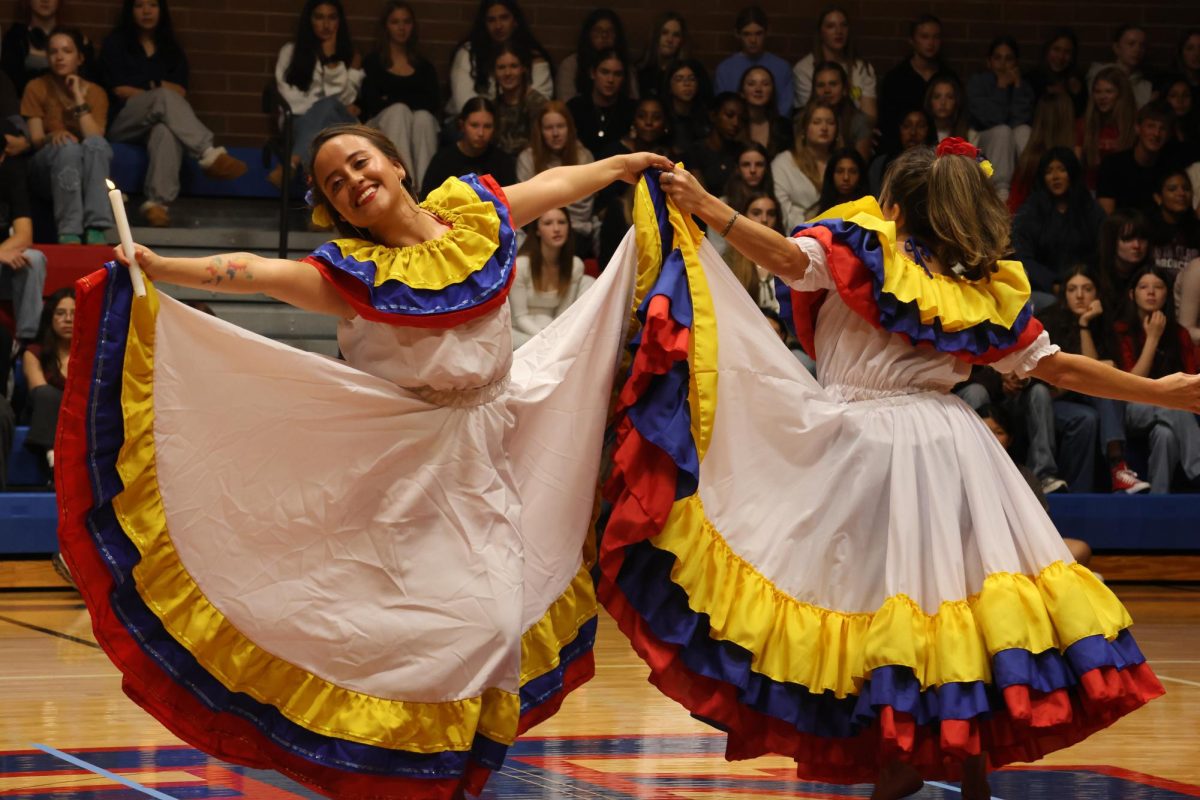
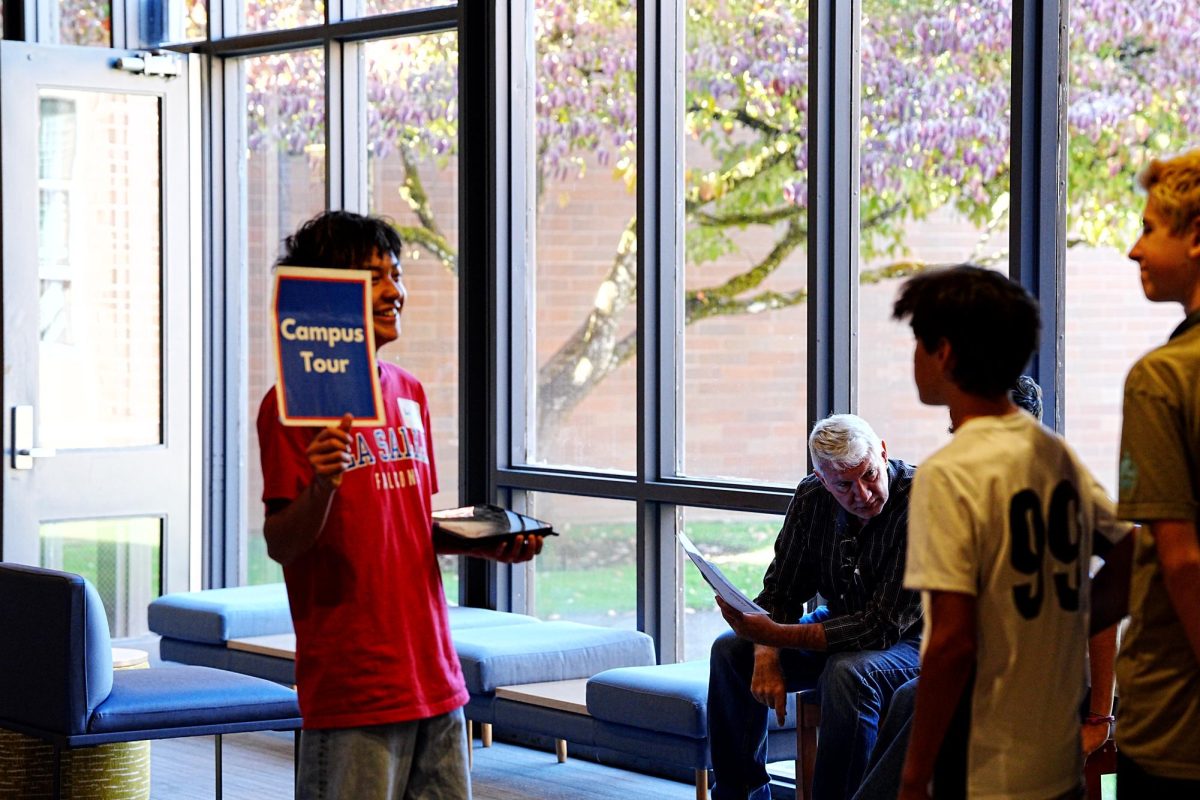
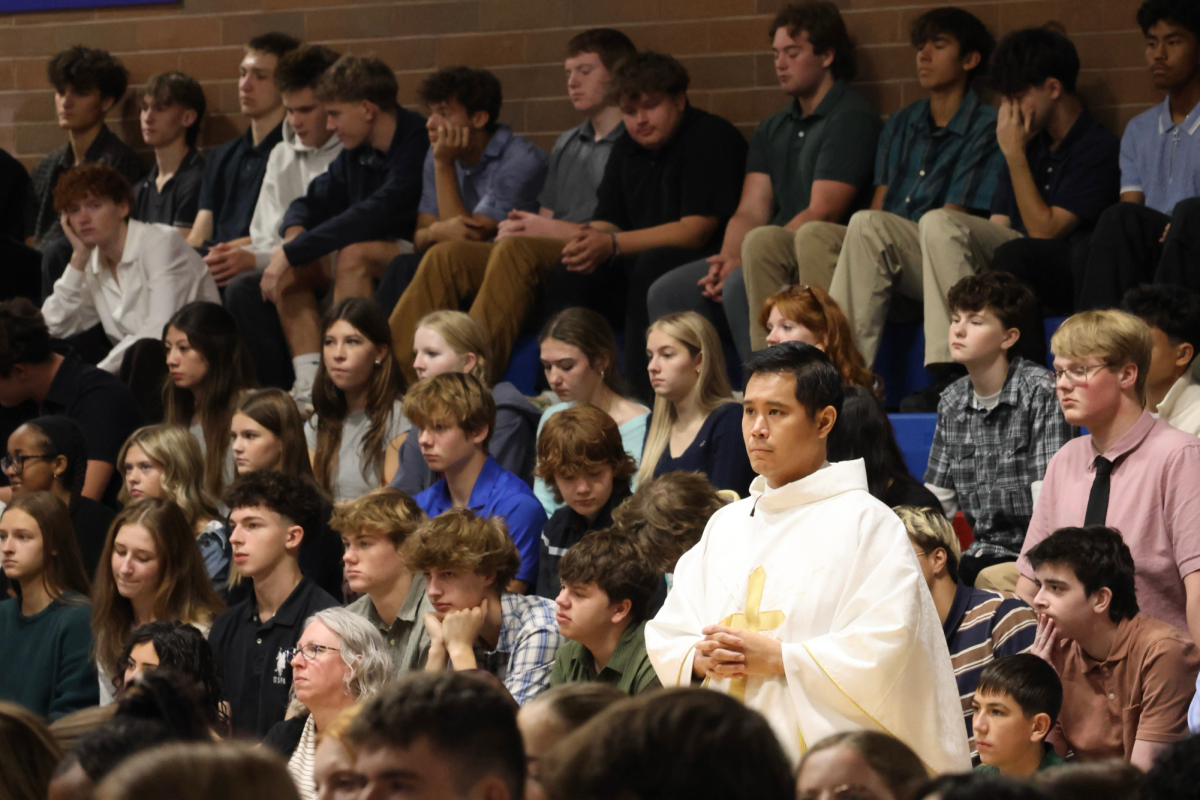
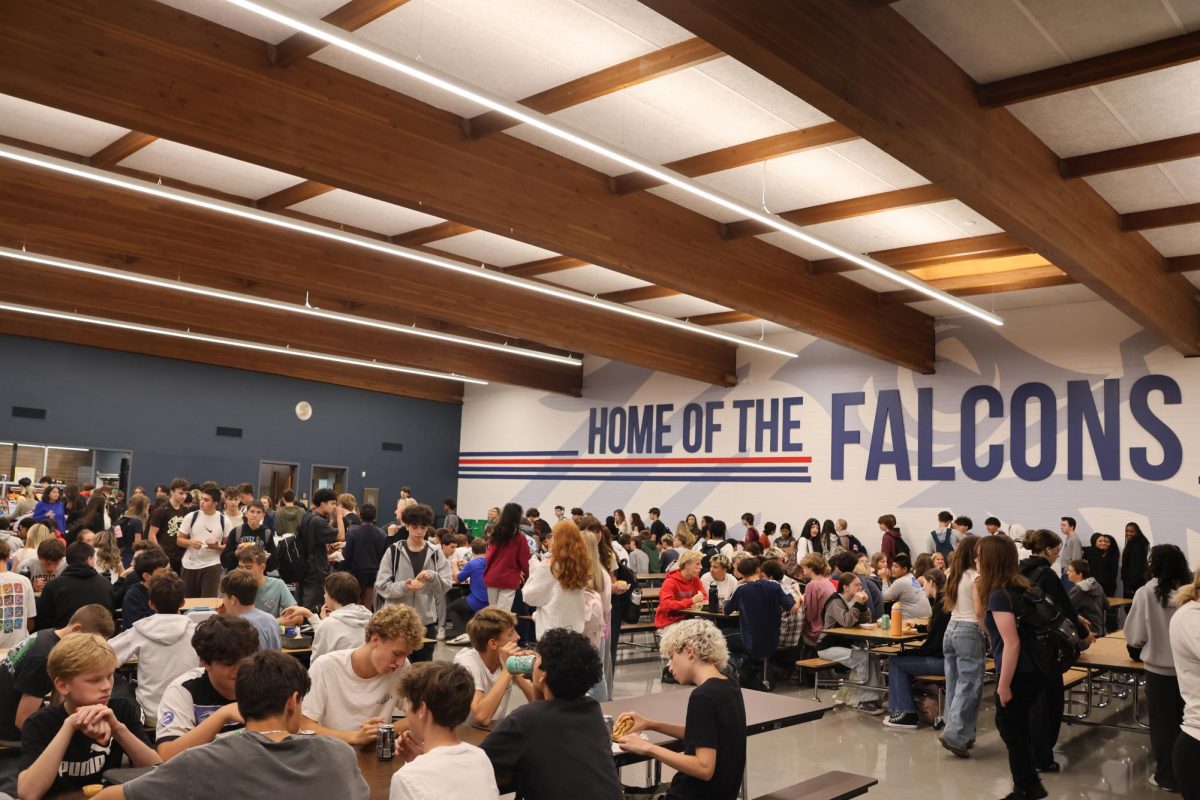
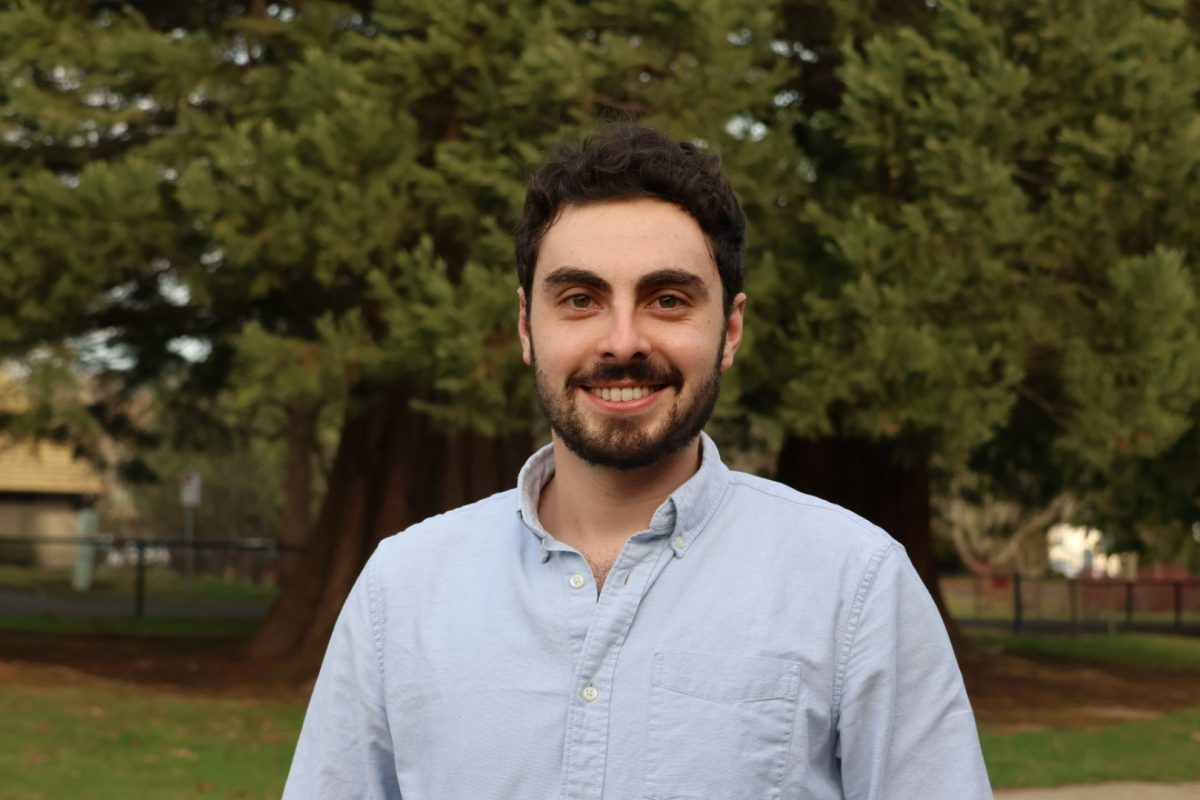
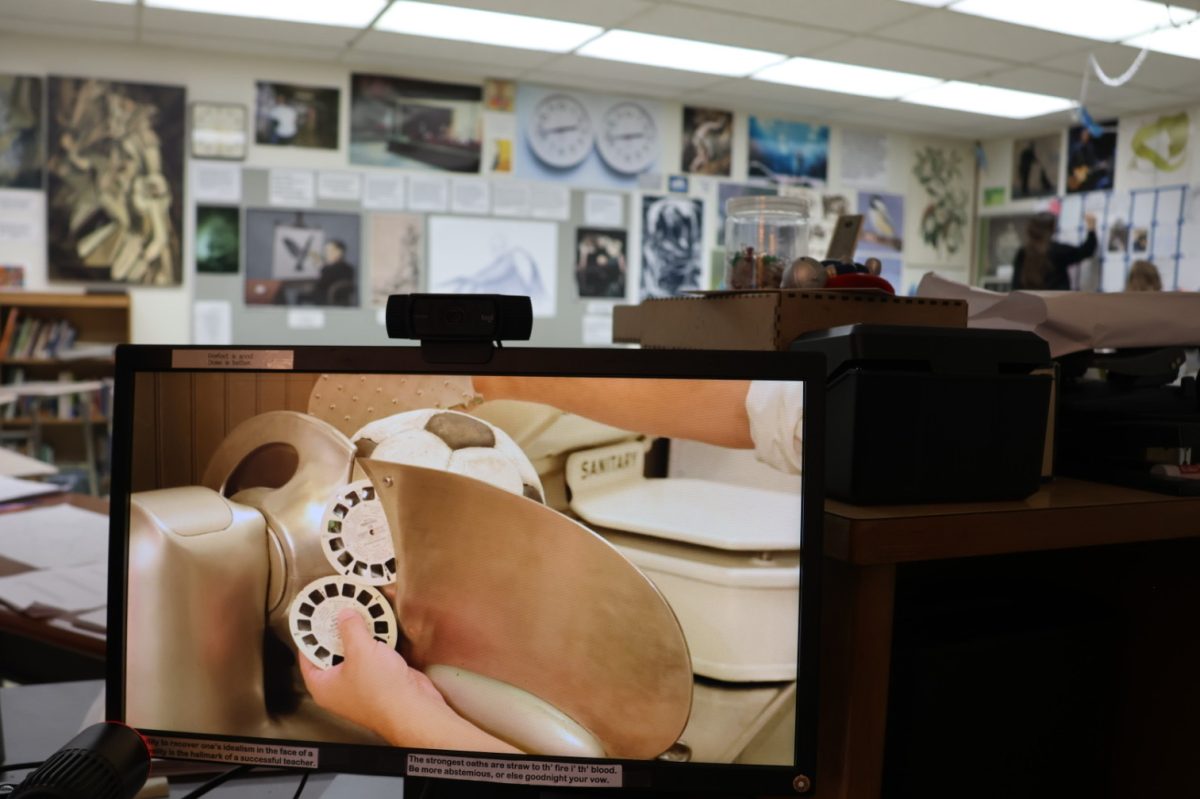
![Now in her 26th year of teaching, Ms. Amy Gantt emphasizes that education is about helping others. “I hope for [students] to see that they had adults in their life who cared about them and who supported them and who were looking out for their wellbeing,” she said.](https://lasallefalconer.com/wp-content/uploads/2024/11/IMG_1176-1200x800.jpeg)
